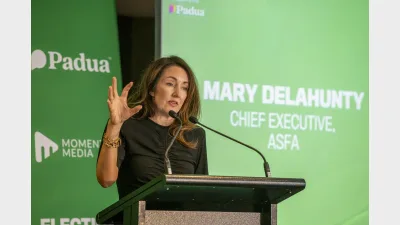Regulation and PC top risk for super funds


More than half (58 per cent) of superannuation fund executives regard government regulation and the Productivity Commission inquiry as their fund’s top risk and 55 per cent believe it as the dominant force shaping the industry, according to a Mercer report.
Mercer’s ‘2020 Super Fund Executive Report – Change or be Changed’ that surveyed 41 super fund executives, found that many super leaders were pre-occupied by regulatory uncertainty and change.
Mercer Australia’s managing director and chief executive, Ben Walsh, said the report exposed the high level of uncertainty within the sector, reaffirming that now was the time for fund trustees and executives to take ownership of what the fund can control to ensure long-term growth and sustainability.
The report also found that despite regulatory and industry pressure to merge, funds were taking a wait-and-see approach, with 68 per cent believing further consolidation of funds in the industry was inevitable in the next five years.
However, only 13 per cent expected consolidation to affect their own fund.
“Some funds are waiting for others to choose, some are waiting to be told and others are just in denial. There is confusion within the industry regarding how to best approach consolidation and how APRA [the Australian Prudential Regulation Authority] will interpret the scale test going forward,” Walsh said.
“The central issue is that the sub-scale tail of APRA-regulated funds face potential forced closure in the coming years, unless they can demonstrate that they are competitive and have a pathway for growth and sustainability.”
There were also inconsistencies found in how funds were seeking to grow. From leaders who believed consolidation to be the top driver of how funds looked in 2020, 71 per cent expected organic growth tactics to be the largest source of member and funds under management growth in the next five years. Only sixteen per cent highlighted retention tactics as a strategic goal.
The report said funds were optimistic that they could attract new members away from other funds but were less concerned about retaining their existing members.
Recommended for you
Aware Super has made a $1.6 billion investment in a 99-hectare industrial precinct in Melbourne’s North which, the fund clarified, also houses the nation’s first privately funded open-access intermodal freight terminal.
ASFA has affirmed its commitment to safeguarding Australia’s retirement savings as cyber activity becomes an increasing challenge for the financial services sector.
The shadow treasurer is not happy with the performance of some within the super sector, telling an event in Sydney on Thursday that some funds are obsessed with funds under management, above all else.
As the Australian financial landscape faces increasing scrutiny from regulators, superannuation fund leaders are doubling down on their support for private markets, arguing these investments are not just necessary but critical for long-term financial stability.












